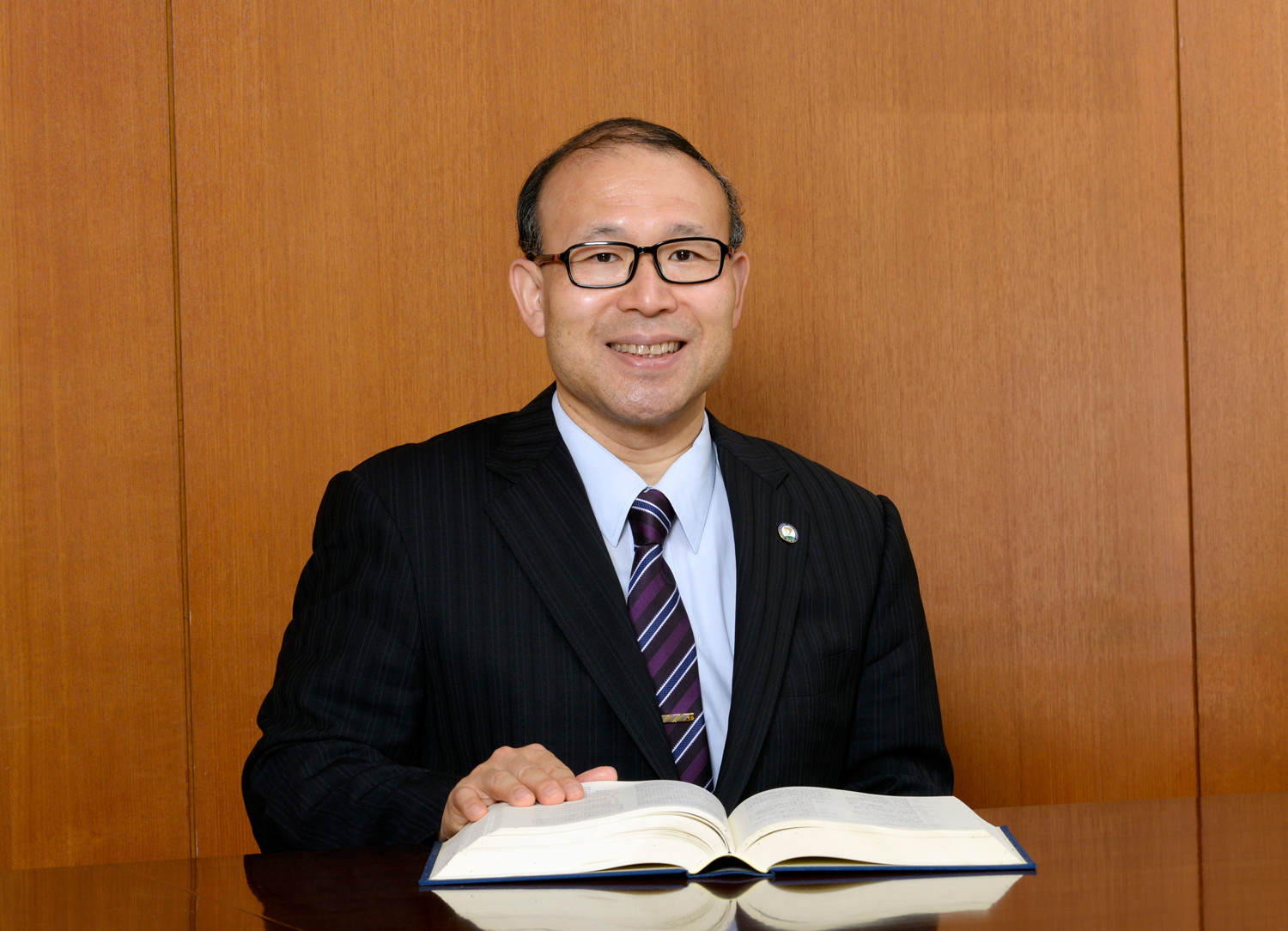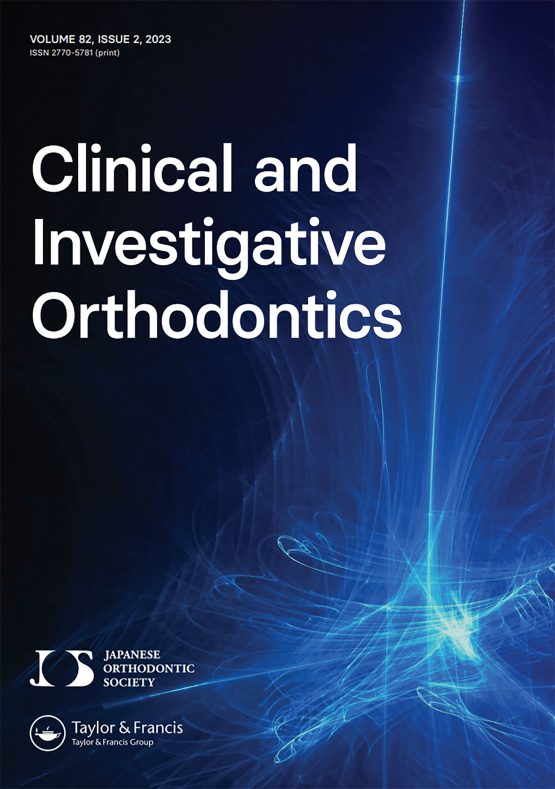「Meet the Editor-in-Chief」:
宮脇 正一 教授
ジャーナル編集者にインタビューする「Meet the Editor-in-Chief」シリーズ。今回は、『Clinical and Investigative Orthodontics』の編集長である宮脇正一教授にお話を伺います。宮脇教授は、大阪大学、奈良県立医科大学、モントリオール大学、岡山大学を経て、現在、鹿児島大学(歯科矯正学分野)で教授を務められています。睡眠時ブラキシズムと胃食道逆流との関連性を実験的に世界で初めて明らかにし、また、歯科矯正用アンカースクリューの研究では2003年の論文(Miyawaki et al, AJO/DO)が被引用回数トップ1%に入るなど、歯科と消化器内科の境界領域ならびに歯科矯正学の分野で先進的な研究を続けていらっしゃいます。また、鹿児島大学では以前歯学部長を務められ、現在は、九州矯正歯科学会の会長をはじめ、日本矯正歯科学会や日本口蓋裂学会などの理事も務めておられます。
This interview is available in English. Click here to read.
はじめに自己紹介をお願いいたします。ご自身、そして現在の研究拠点について簡単にご説明をお願いします。
私は1989年に大阪大学歯学部を卒業後歯科矯正学講座で研鑽を積み、1994年に博士(歯学)を取得しました。1997年に奈良県立医科大学口腔外科学分野の助手、1999年に岡山大学病院矯正歯科の講師、2001年にモントリオール大学歯学部の客員研究員、2005年4月に岡山大学准教授、2005年6月に鹿児島大学大学院医歯学総合研究科歯科矯正学分野の主任教授を拝命し、これまで歯科矯正学の教育・研究・診療などに携わってきました。鹿児島大学では、教育に関して、これまで30名以上の医局員が博士号と認定医を取得すると共に2名の教授を輩出しました。研究に関しては、歯科矯正用アンカースクリューとブラキシズムに関する研究を行っており、私が筆頭著者のアンカースクリューに関する2003年の原著論文が被引用回数でトップ1%に入り、ブラキシズムに関しては胃食道逆流との関連性を世界で初めて報告しました。臨床に関しては、これらに加え、口唇裂口蓋裂の診療を積極的に行っています。私は、2014年から日本矯正歯科学会学会誌『Clinical and Investigative Orthodontics』の編集長をしており、約100年の日本矯正歯科学会の歴史において、2023年6月に初めてJournal Impact Factorを取得しました。今後は、この学会誌のプレゼンスをさらに高めていきたいと考えています。

現在の仕事のフォーカス(焦点)についてご説明ください。
教育に関しては、これまでのように国内外で活躍出来る矯正歯科医と研究者を育成して、地域ナンバーワンの開業医と歯科矯正学分野の発展に貢献出来る教授を数多く輩出したいと考えています。研究と臨床に関しては、私のキャリアが、唇顎口蓋裂を伴う患者の顎口腔機能に関する研究から始まり、その後、顎関節症、睡眠時ブラキシズム、歯科矯正用アンカースクリューに絞って、研究を行って参りました。従いまして、今後は、歯科矯正用アンカースクリューの治療に役立つ新たな医療機器の開発や、歯科と消化器内科との境界領域に関する研究を推進したいと考えています。学会誌に関しては、PubMed収載やMedline収載を早く実現させて、Journal Impact Factorの向上を目指して、さらに国際的にも貢献したいと考えています。

Clinical and Investigative Orthodonticsの編集長になられたきっかけと、編集長としての日々の役割について簡単に教えてください。
私の恩師であり以前Clinical and Investigative Orthodonticsの編集長を務められた山本照子先生のもとで編集幹事をさせて頂いたことが最初のきっかけだと記憶しております。また、同様に私の恩師の高田健治先生をはじめ、飯田順一郎先生や齋藤功先生ら歴代の編集長の下で編集委員を務めたことや、石川博之先生をはじめとする歴代の日本矯正歯科学会の理事長による多大なるご支援などもあって、2014年に編集長を拝命し現在に至っています。編集長としては、編集幹事(前田、大賀)とTaylor & Francisのサポートチームと協力して、編集業務を行っております。そして、編集委員の先生方と協力しながら、査読業務を行い、質の高い論文が掲載されるよう努力しています。また、査読をスムーズに進めるために、多くの査読を担当してくれた査読者に毎年感謝状を贈呈するなどの工夫もしています。
Clinical and Investigative Orthodonticsはダイヤモンド・オープンアクセス誌です。歯科矯正学の分野でオープンアクセス出版を推進するジャーナルのビジョンと、それが研究者、歯科医師、その他の医療専門家にどのような利益をもたらすかについて詳しく教えてください。
日本矯正歯科学会は、機関誌をダイヤモンド・オープンアクセス誌にすることにより、経済的な理由に左右されることなく、全世界の人々が平等に学術的発信をすることができ、また、掲載された全論文を無償で読むことが出来るようになりました。日本矯正歯科学会は、歯科矯正学が益々発展することを目標としております。このような国際的な貢献により、多くの研究者、歯科医師ならびにその他の医療専門家に、経済的に恵まれていない国においても、良好な研究環境を与えられ、それがさらなる歯科矯正学の発展に繋がることから、研究者や臨床家に対して、大きな利益をもたらすものと考えます。
Clinical and Investigative Orthodonticsは、歯科矯正学と歯科顔面矯正学の研究を幅広くカバーしています。この分野の今後の方向性についてどのようにお考えですか?また、このような発展を進める上で、ジャーナルはどのような役割を果たすことができますか?
歯科矯正学分野は、非常に多くの分野と関連がある歯科の一分野です。そのため、今後も発展し続けるためには、現時点で分野を限定せずに、幅広い分野の論文を掲載して、多くの分野の知見を取り入れることが必要と考えます。従って、本機関誌は、ダイヤモンド・オープンアクセス誌であることから、研究者の経済状況に関わらず無料で論文が掲載され、全世界の人々に全ての論文を無償で提供できることから、今後の歯科矯正学分野の発展に大きく貢献できると考えます。
Clinical and Investigative Orthodonticsは、歯科矯正学と歯科顔面矯正学の研究を幅広くカバーしています。この分野の今後の方向性についてどのようにお考えですか?また、このような発展を進める上で、ジャーナルはどのような役割を果たすことができますか?
最近、ハゲタカジャーナルやそれに類似した十分な査読を行っていないジャーナルがあります。それらは、OA誌であることが多く、高いIFが付いていることもあります。本機関誌は、2022年にIFを獲得し、2023年からOAジャーナルとなったばかりですが、1926年から続く歴史あるジャーナル(英文誌は1998年から)でもありますので、安心して投稿していただけます。本機関誌は、日本矯正歯科学会がスポンサーになっており、Article Processing Charge (APC)が無料であることに加え、伝統誌でもあります。今後Journal Impact Factorが上がることが予想され、掲載論文も益々増えると思われますので、是非、本機関誌に、自分の論文を投稿して頂きたいです。

About the Journal
Clinical and Investigative Orthodontics is a Diamond model open access journal (APC is free of charge) and we welcome high quality orthodontic research papers and reviews from around the world.
Clinical and Investigative Orthodontics is the official journal of the Japanese Orthodontic Society (JOS), inheriting the history of Journal of Japan Orthodontic Society established in 1932. This journal aims to provide a high level of orthodontic research discoveries which facilitates researchers, dentists, and other health professionals from Asia and the entire world. Clinical and Investigative Orthodontics publishes Original articles and Review articles.
